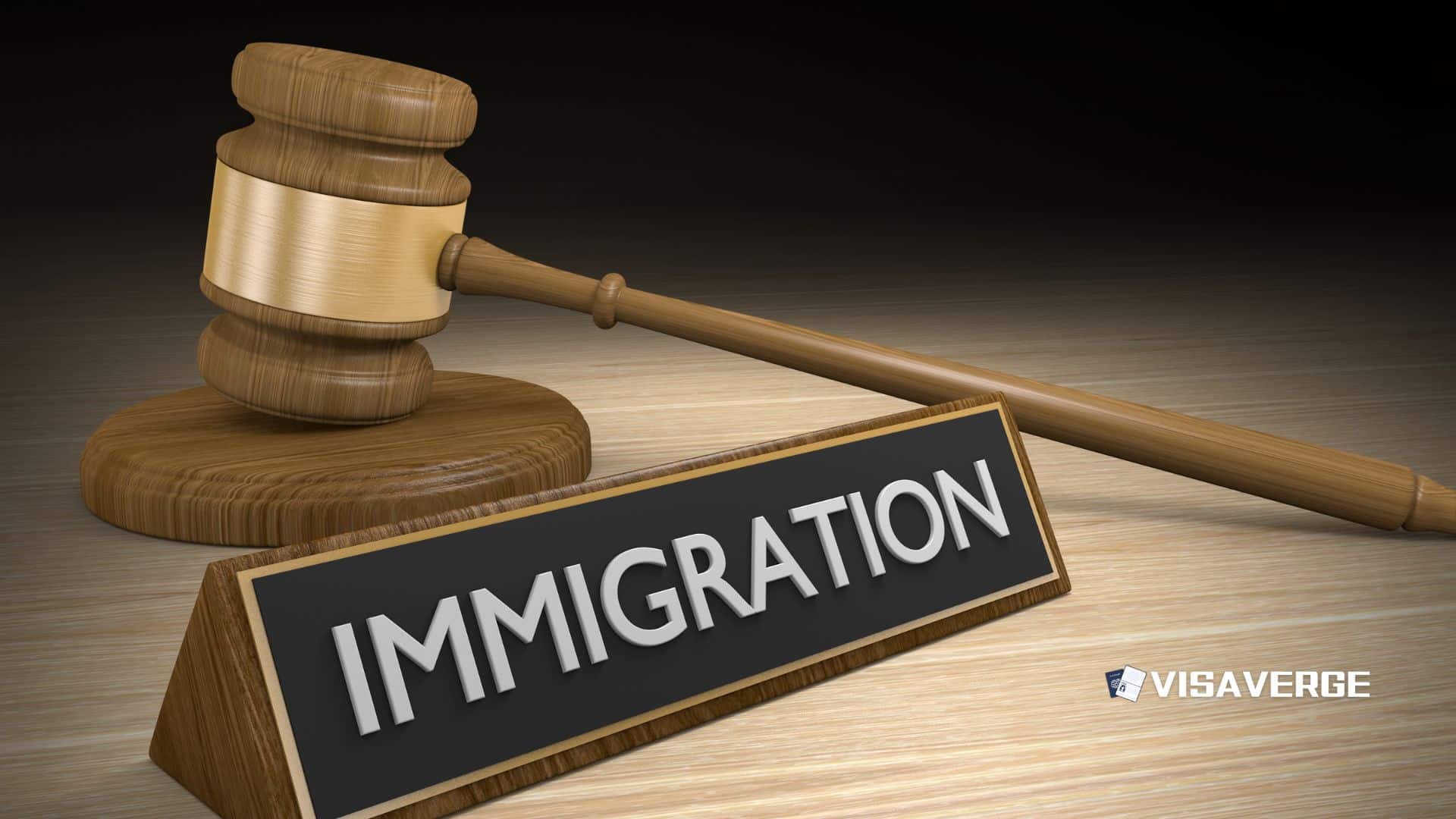Key Takeaways
• Trump administration ends Haitian TPS, affecting 500,000 immigrants and shortening protection to August 3, 2025.
• Massachusetts has up to 20,000 Haitian TPS holders; community leaders warn of economic, family, and social disruption.
• Community organizations offer legal aid, and advocates pursue lawsuits challenging TPS termination and related immigration policies.
The Haitian community in Greater Boston faces major challenges after the Trump administration’s recent move to end Temporary Protected Status (TPS) for about 500,000 Haitian immigrants across the United States 🇺🇸. This tough decision has caused deep worry, fear, and confusion for many families, especially for those who have built their lives, careers, and futures in America. Let’s look closely at what’s happening, why it matters, how the community is responding, and what it means moving forward.
What Happened: Trump Administration’s TPS Decision

In February 2025, the Trump administration announced they will end TPS for Haitians. TPS is a special government program. It lets people from certain countries stay in the United States 🇺🇸 temporarily if a disaster has made it dangerous for them to go home. Many Haitians got this protection after the 2010 earthquake caused huge destruction and continued problems in Haiti.
Before this announcement, Haitian TPS holders were told they could stay for 18 more months, but the Trump administration cut this down to just 12 months. Now, TPS for Haitians ends on August 3, 2025, not February 3, 2026. For thousands of local families, this means they only have a short time left before their right to stay in the United States 🇺🇸 runs out.
Why TPS Matters to the Haitian Community
Massachusetts is home to the third largest population of Haitians in the United States 🇺🇸, with Boston ranking second in the country for the percentage of Haitian people living in one city. Estimates from the MIRA Coalition put the number of Haitians in Massachusetts with TPS around 15,000. The Immigrant Family Services Institute believes the number could be closer to 20,000.
TPS has helped thousands not just to survive, but to build strong lives here. After the 2010 earthquake, many Haitians found themselves unable to return home safely. The United States 🇺🇸 granted them temporary status for humanitarian reasons. Since then, these families have worked jobs, raised children, and supported the community.
Many TPS holders work as certified nursing assistants, school drivers, and in other essential jobs. Their roles are vital, especially in key sectors such as healthcare and transportation. Rev. Myrlande DesRosiers, who runs the Everett Haitian Community Center, said this move “will significantly impact the economy of this state,” pointing to how deeply Haitian TPS holders are woven into important industries.
The Human Cost: Fear, Uncertainty, and Family Separation
As reported by VisaVerge.com, the Trump administration’s decision did more than just change legal status—it hit at the heart of the Haitian community’s sense of safety and belonging.
For many Boston families, this move could mean being separated from their children, since lots of TPS holders are parents to U.S. citizen kids. One parent interviewed shared their greatest fear: “What people are worried about, they say if we have to go [back to Haiti] as parents, we would not want to go with our children.” This heartbreaking choice—leave children in America for their safety and future, or bring them back to a country struggling with violence and poverty—keeps thousands awake at night.
There are deeper worries, too. Haitian TPS holders know that Haiti is still facing huge problems with gangs and violence. The United Nations reported that gangs now control 85% of the capital, Port-au-Prince, and that sexual violence against children rose by 1,000% last year. Pastor Dieufort Fleurissaint called the Trump administration’s TPS decision “very inhumane. Unjust as well as cruel and racist.” Many in the Haitian community feel targeted and left behind by these new rules.
How the Community is Responding
Despite the fear, Haitian groups and local leaders are not giving up. Instead, they have come together stronger to speak up, offer support, and push for fair treatment.
Leaders Speak Out
Boston City Council President Ruthzee Louijeune, who became the first Haitian American elected to the Council in 2021, condemned the move as “cruel” and “inhumane.” She said it singles out “the most vulnerable,” accusing the Trump administration of sending a devastating message to people who have worked hard and followed the law.
Community organizations like the International Institute of New England, the Everett Haitian Community Center, and the Immigrant Family Services Institute work every day to help those who are at risk. They provide counseling, legal help, and workshops so people know their rights.
Legal Support and Information
City officials have acted quickly to help. The city of Boston is giving out brochures and holding meetings about rights under the law, what to do if questioned by immigration officers, and how to find good immigration lawyers. They urge everyone with TPS to check if they qualify for other ways to stay in the United States 🇺🇸, such as family sponsorship or asylum. People are told to talk with trained lawyers, not just friends or community members, as rules can be very confusing and mistakes could put people at risk.
The U.S. Citizenship and Immigration Services (USCIS) also has up-to-date information on TPS and other immigration programs for those seeking official details or next steps.
Economic Impact: How the Loss of TPS Hurts Everyone
The end of TPS hits not just individuals, but all of Massachusetts. Haitian workers are vital in healthcare, transportation, and service jobs—roles that are hard to fill.
Rev. Myrlande DesRosiers explained, “If you take away this group from the workforce, it will create a real gap.” Hospitals, nursing homes, and schools rely on Haitian workers, who often have years of experience and special skills. Without them, whole services could slow down or stop, especially as Massachusetts faces shortages in these fields.
The worry stretches to small businesses, restaurants, and churches. Haitian TPS holders are customers, workers, and community members; removing them would mean fewer people spending money, less tax revenue for the state, and a weaker local economy.
Family and Community Bonds Under Threat
The threat of family separation hangs heavy. If TPS ends, parents may face removal from the country—leaving behind their U.S. citizen children. The fear of families being broken up has brought the community even closer, with churches, schools, and neighbors looking for ways to stand together.
Many say they are trying to remain strong for their children. Some have built homes, started businesses, or bought property. They have paid taxes and become part of American life. Losing TPS, for them, is not just losing a piece of paper—it’s being forced to let go of dreams they have worked years to build.
What Makes This Different: The Larger Pattern
The Trump administration’s decision doesn’t just affect Haitians. It is part of a bigger change in immigration policy that also reached Venezuelan TPS holders in Massachusetts in February 2025. The government ended their protected status, too.
At the national level, there are signs of a tougher approach in general. Border Czar Tom Homan made tough statements, threatening to “bring hell” to Boston, which has added to the anxiety many immigrants feel. Some worry these comments encourage fear and division.
Immigration advocates have answered by filing lawsuits. They challenge not just the end of TPS, but also other executive orders such as the plan to stop “birthright citizenship”—the right to citizenship for anyone born in the United States 🇺🇸. These legal fights could take time, and their outcome will affect many families.
How Did We Get Here? A Brief Look Back
To better understand today’s crisis, it is important to remember why TPS was created and how it has been used. TPS lets people stay in the United States 🇺🇸 when something sudden and dangerous happens in their home country—such as war, earthquake, or disease. Since the 2010 earthquake, Haiti has struggled with rebuilding, political unrest, and growing gang violence. This made it unsafe for many families to return.
For years, the United States 🇺🇸 renewed Haitians’ right to stay under TPS, recognizing ongoing problems in Haiti. The Trump administration’s latest move marks a sharp departure, signaling a new, stricter view on who should be allowed to remain in the country.
What is at Stake for Haitian Families?
No one disagrees that a government has the right to set its immigration policies. But the speed and seriousness of these changes have shocked many. They believe the Trump administration did not consider the current level of instability in Haiti—or the years of contribution and community work Haitian TPS holders have put in.
The threat of losing status is more than just paperwork. For Haitian TPS holders, it means:
- Losing jobs and income
- Risking deportation to a dangerous country
- Leaving behind children, some of whom do not even speak Haitian Creole or have ever visited Haiti
- Breaking up families and friendships
- Losing access to healthcare and education
At the same time, employers and institutions in Massachusetts are worried because they count on Haitian workers to fill jobs that keep vital services running.
Community Voices and the Fight for Justice
Many in the Haitian community are not standing by quietly. Local leaders, churches, and advocacy groups are organizing rallies, speaking to elected officials, and encouraging everyone to vote and get involved. They say Haitians have paid taxes, followed the law, and contributed to society, and that they deserve a fair chance to keep living and working in America.
Some hope that legal challenges or new leadership could reverse the decision or at least delay deportations until Haiti is safer. Community leaders continue pressing for Congress to take action, arguing that offering permanent relief would not only be fair, but would help Massachusetts and the United States 🇺🇸 as a whole.
What Can Affected Haitians Do Now?
If you or someone you love is affected by the end of TPS, experts recommend:
- Get advice only from trained immigration attorneys, not just friends or unlicensed “notarios.”
- Gather all important documents, including work history, school records, and proof of U.S. citizen children.
- Ask about other possible forms of relief, such as asylum or family-based applications.
- Stay connected to community organizations, which often offer free or low-cost help.
For more, see the official USCIS page on Temporary Protected Status which remains the top place for updates and official forms.
Looking Ahead: Uncertain Future, Ongoing Hope
As August 2025 approaches, uncertainty hangs over Boston’s Haitian community. Will the Trump administration press forward with these strict policies? Will courts step in to block the changes? No one can say for sure.
What is clear is that the Haitian community is resilient. They have overcome disaster before. Now, they are finding strength in unity, standing up for their families, and refusing to give up hope.
The situation shines a light on the complex ties between immigrants and the American communities where they live and work. The debate over Temporary Protected Status is about laws and governments, but it is also about real people—their lives, jobs, dreams, and fears.
Massachusetts, like the rest of the United States 🇺🇸, faces the question: who gets to stay, who deserves a safe home, and how can the country remain true to its values? The answer will shape families and communities for years to come.
In this climate, the most important thing Haitian immigrants can do is stay informed, stay involved, and support one another as they wait for the next chapter in this struggle to unfold.
Learn Today
Temporary Protected Status (TPS) → A U.S. immigration program allowing individuals from certain countries to temporarily live and work due to unsafe conditions at home.
USCIS → U.S. Citizenship and Immigration Services, the government agency that manages lawful immigration and benefits like TPS.
Family sponsorship → A process where U.S. citizens or permanent residents help relatives obtain legal immigration status through petitions.
Asylum → Protection granted by a country to foreign nationals fleeing persecution in their home countries, allowing them to stay legally.
Deportation → The legal removal of a foreign national from the United States, often resulting from immigration status violations or legal changes.
This Article in a Nutshell
The Trump administration’s decision to end Temporary Protected Status (TPS) for Haitians shakes the Greater Boston community. Thousands face family separation and job loss as protection ends August 3, 2025. Local leaders and organizations urge legal action, information awareness, and unity while hopeful legal and political efforts might provide relief.
— By VisaVerge.com
Read more:
• Venezuelan TPS Holders Turn to Court to Keep Deportation Protections
• Employers Must Adjust I-9 Records as Haitian TPS Work Permits Shortened
• Administrative Pause Leaves TPS Applicants Before 02/18/25 in Limbo
• Trump Moves to End TPS for Venezuelans, Leaving Thousands in Limbo
• Orlando Haitian Community Voices Deportation Fears Amid TPS Changes













